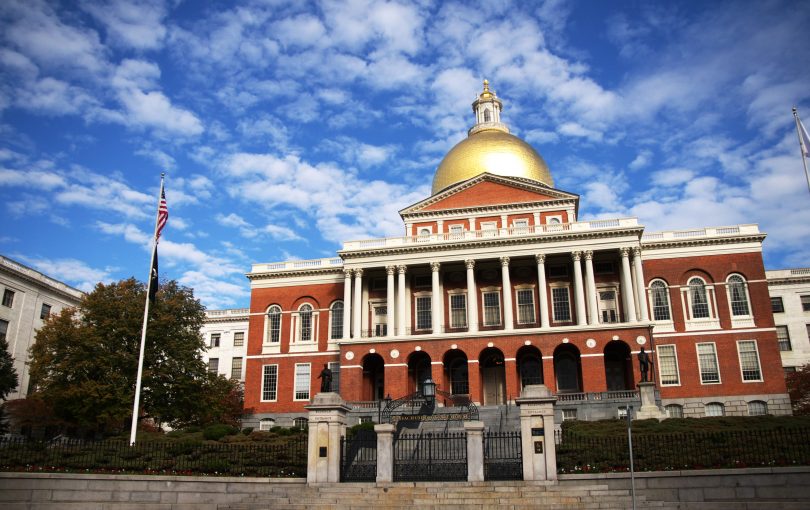By Isabel Tehan
Boston University Statehouse Program
BOSTON — Two months after its formation, the commission investigating the history and harm of the Massachusetts state seal plans to ask for an extension, which would allow them until 2023 to make their recommendations for changes to the seal.
The commission, made up of state legislators, tribal leaders, advocates, and historians, has been slow-moving. Previously given a Dec. 31, 2022 deadline, the group said they hoped to have recommendations by June.
Now, two months since their work began, the commission remains unclear even on the nature of the recommendations they have been tasked with making, and unanimously voted that they need more time. Determining how much of a change to recommend is still a top consideration, and the commission has reached no conclusion.
Since February, the commission has divided itself into subcommittees, one to examine the “Histories and Usage” of the seal, and the other for “Public Consultation.” Conceived of in the 1790s, the seal currently depicts an Indigenous man standing below a sword-wielding colonist’s arm.
The commission has a lingering point of confusion: “is it an entire rework or tweaking of elements” they are recommending, asked Michael Comeau, co-vice chair of the Massachusetts Archives, at a meeting Tuesday. This is a question he and the histories and usage subcommittee will continue to tackle, aiming to answer this for the broader commission by June.
The subcommittee is seeking out more Indigenous perspectives, and in their last meetings were slowed by differing opinions.
“We didn’t come to any great conclusions,” Comeau reported to the commission at large. They continue to “wrestle with intent,” he said, as the historical record detailing the creation of the seal is lacking.
Cheryl Andrews-Maltais, chairwoman of the Wampanoag Tribe of Gay Head Aquinnah, asserted that historical intent is less important than the path forward. The focus, she said, should be on “creating imagery that the constituents of the commonwealth can feel proud of.”
When to consult the public also remains a question. It is imperative to include public opinion in the decision-making process, the commission agrees.
“This is a change that can affect everyone in this commonwealth,” said Brian Boyles, executive director of the Massachusetts Foundation for the Humanities, and co-chair of the commission.
He summarized the public consultation subcommittee’s discussions, which included identifying groups to consult. For now, the list includes educators and libraries throughout the state.
“Comprehensive public inclusion is a priority,” said Comeau, who is acting as the designee for Secretary of the Commonwealth William Galvin. “The whole process needs to be as transparent as possible.”
General public feedback will come once the bill, including the commission’s recommendations, is eventually filed, said Rep. Antonio Cabral, D, New Bedford, who is the only member of the House of Representatives on the commission. For the group’s recommendations to be accepted, there is need for support in the Legislature and from the general public, he said.
“We have to be realistic about the legislative process.”
What the commission will recommend, when, and how the public will respond, will not be determined for months. All that is certain now is that this group unanimously agrees they need an extension.
This article originally appeared in SouthCoast Today.





